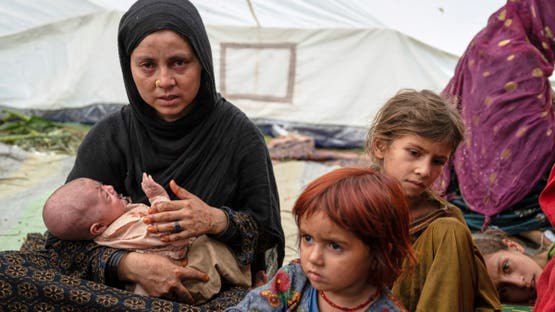Taliban Imposes Restrictions on Photographing Women During Relief Operations After Earthquake in Afghanistan

The local authorities in Nangarhar province, under the control of the Taliban, have imposed new restrictions on the work of humanitarian organizations following the recent earthquake that struck the eastern part of the country, including a ban on photographing women during the distribution of aid.
A statement issued by the media office of the Nangarhar governor on Saturday stated that the instructions aim to "avoid what provokes community sensitivities," calling for respect for "Afghan and Islamic customs and values." The statement confirmed that the decision is based on directives from the provincial Ministry of Justice, warning against violating the instructions.
Since December 2022, the Taliban has imposed restrictions on the work of women in non-governmental and international organizations, before expanding them in April 2023 to include United Nations employees. According to UN officials, these measures have directly affected the ability of relief agencies to deliver aid to women and girls, especially in remote and mountainous areas such as Kunar and Nangarhar provinces, where distributing aid to women requires the presence of female staff.
Field sources indicated that only a few women are still able to participate in relief operations in the eastern part of the country, despite the urgent medical needs of the affected women.
Local media reports revealed the deaths of six pregnant women in Kunar province due to a lack of female medical staff, in addition to difficulties faced by others during childbirth.
Local activists criticized these directives, considering them to complicate the access of aid to women and girls in the affected areas. In contrast, the Ministry of Health in the Taliban government denied the existence of a shortage of female medical staff, indicating that hospitals in Kunar, Nangarhar, and Laghman provinces have female doctors and nurses providing health services to the affected.
For its part, the World Health Organization confirmed that the restrictions imposed on female doctors have caused real difficulties in providing healthcare in mountainous and remote areas.